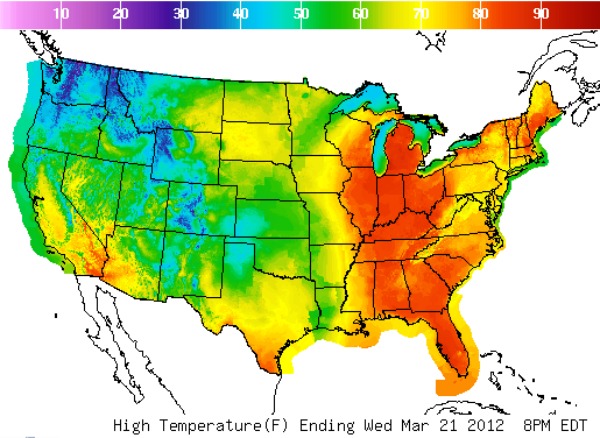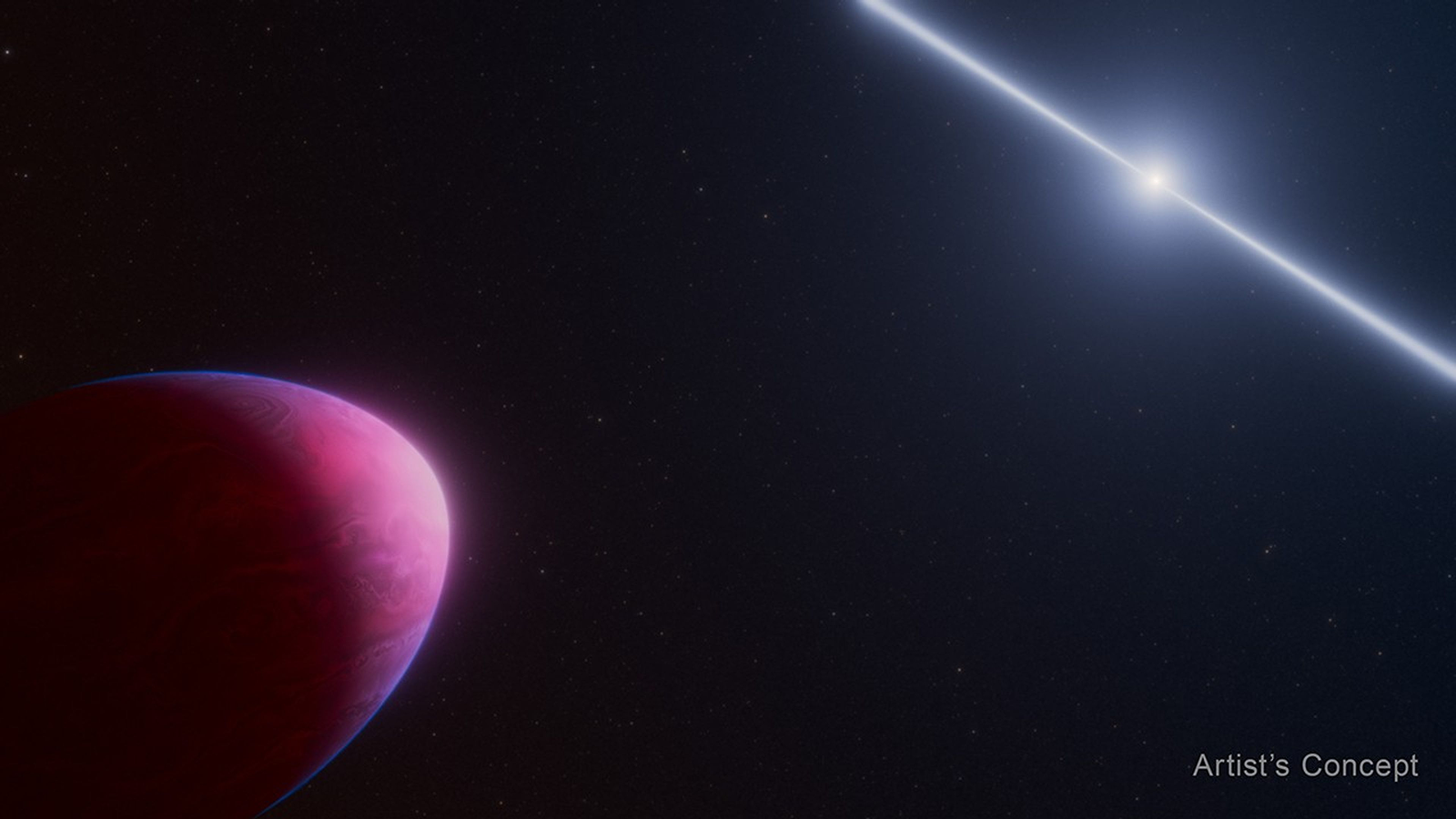Do Record High Temps Mean a Scorching Summer is Ahead?


With temperatures soaring in many places around the United States, many might be wondering if this is a sign of another sweltering summer.
On Wednesday (March 21) alone, more than 70 major cities were within sight of record highs, according to the Weather Channel.
Quite a few of those cities have already broken the previous record high — some by a little, some by a lot.
New York City broke its record high of 68 degrees, set in 1979, by two degrees.
In Chicago, temperatures have hovered in the low to mid-80s for more than a week. On Wednesday, it reached 85. The notoriously chilly city has shattered previous record highs for the last eight days. [Weirdo Weather: 7 Rare Weather Events]
"Our records go back to 1873, so you're looking at quite a bit of time there," said Amy Seeley, a meteorologist with the National Weather Service's Chicago office.
And on Monday (March 19), in International Falls, Minn. — known as "The Nation's Icebox" and one of the coldest places on Earth — the low temperature, 60 degrees, tied with the previous record high for the day, set in 1918. (Temperatures climbed to a balmy 78 degrees.)
Get the world’s most fascinating discoveries delivered straight to your inbox.
Forecasters say the jet stream, essentially an atmospheric fence that separates cold air from warm, is draped across the country like an S turned sideways. In the east, it's hovering above Canada, allowing hot southern air to rush northward.
When low temperatures are the same as previous record highs, "that's incredible — to me, that's just mind-boggling," said Mike Halpert, deputy director of the National Oceanic and Atmospheric Administration's Climate Prediction Center.
However, he said, it's not necessarily a harbinger of things to come. "It doesn't necessarily point to anything," Halpert told OurAmazingPlanet. "It doesn't mean it won't be a hot summer, but it doesn't mean it will be either," he said.
Halpert pointed to the freak snowstorms that hit in fall 2011, which prompted a lot of questions about whether the coming winter would be unusually cold and snowy. "Clearly, the answer was no," he said.
Yet, he said, there's a chance summer could be on the warm side. The most recent outlook for June, July and August, a big-picture projection based on large-scale climate phenomena such as La Niña, was published on March 15.
"There's a tilt in the odds toward a warmer summer for the southern two-thirds of the country, but it's not a guarantee," Halpert told OurAmazingPlanet. "We don't give guarantees in the climate business."
Reach Andrea Mustain at amustain@techmedianetwork.com. Follow her on Twitter @AndreaMustain. Follow OurAmazingPlanet for the latest in Earth science and exploration news on Twitter @OAPlanet and on Facebook.


